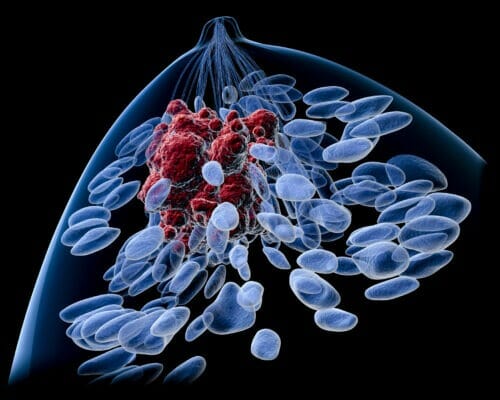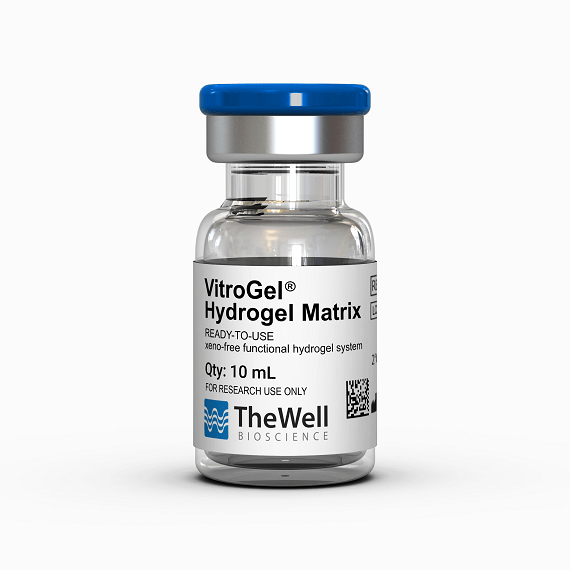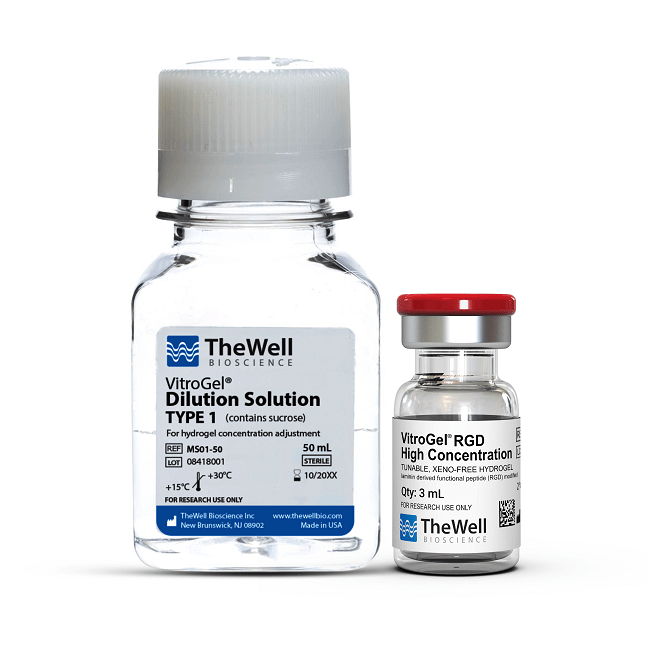Research Highlights
Targeting Soluble Vimentin to Suppress Metastatic Breast Cancer Models In Vivo and In Vitro

Institution:

Precision Medicine Research Center, Seoul National University
Team:
Pang, K., Park, J., Ahn, S. G., Lee, J., Park, Y., Ooshima, A., Mizuno, S., Yamashita, S., Park, K.-S., Lee, S.-Y., Jeong, J., Ushijima, T., Yang, K.-M., & Kim, S.-J.
Application:
Targeting Vimentin to suppress metastasis breast cancer
Disease Model:
Breast Cancer
Hydrogel:
VitroGel® 3D
Among the molecular subtypes of breast cancer, ERα-positive breast tumors are a well-differentiated phenotype and are correlated with a better prognosis than ERαnegative breast tumors, which are extremely aggressive subtypes associated with a poor prognosis. Unfortunately, patients with triple-negative breast cancer (TNBC) or ERα-negative breast tumors do not benefit from antihormonal therapy or traditional chemotherapy. It is imperative to study prognostic and therapeutic applications that could both improve the quality of life and survival of breast cancer patients. Although the function of ERα has been extensively studied in breast cancer, how the loss of ERα contributes to tumorigenesis and metastasis in TNBC is unclear. To shine a light on this area, the researchers targeted Vimentin, an intermediate filament protein that is, highly expressed in aggressive breast cancer. Vimentin regulates cell adhesion and motility through its phosphorylation (soluble form) and dephosphorylation (insoluble form). They showed that RING finger protein 208 (RNF208) decreases the stability of soluble Vimentin protein through a polyubiquitin-mediated proteasomal degradation pathway, thereby suppressing metastasis of TNBC cells.
To identify biomarkers associated with breast cancer progression, they performed RNA sequencing in several breast cancer cell lines. Their result showed that RNF208 was significantly under-expressed in TNBC cells compared to luminal breast cancer cells. This led them to investigate the relationship between RNF208 and ERα expression using public microarray datasets. They also investigated how the expression level of RNF208 affects tumorigenesis in vitro and in vivo. Using our hydrogel for the in vitro studies, they showed that overexpression of RNF208 suppresses tumor formation and lung metastasis of TNBC cells. RNF208 plays a negative role in aggressive breast cancer progression by destabilizing AKT-mediated phosphorylation of soluble Vimentin. Their data presents a mechanism by which RNF208, an estrogen-inducible E3 ligase, facilitates K27-linked polyubiquitin-mediated proteasomal degradation of soluble Vimentin by targeting phosphorylated Vimentin at Ser39, thereby exerting a unique function of RNF208 in breast cancer progression.
Read the publication:
Related Products:




